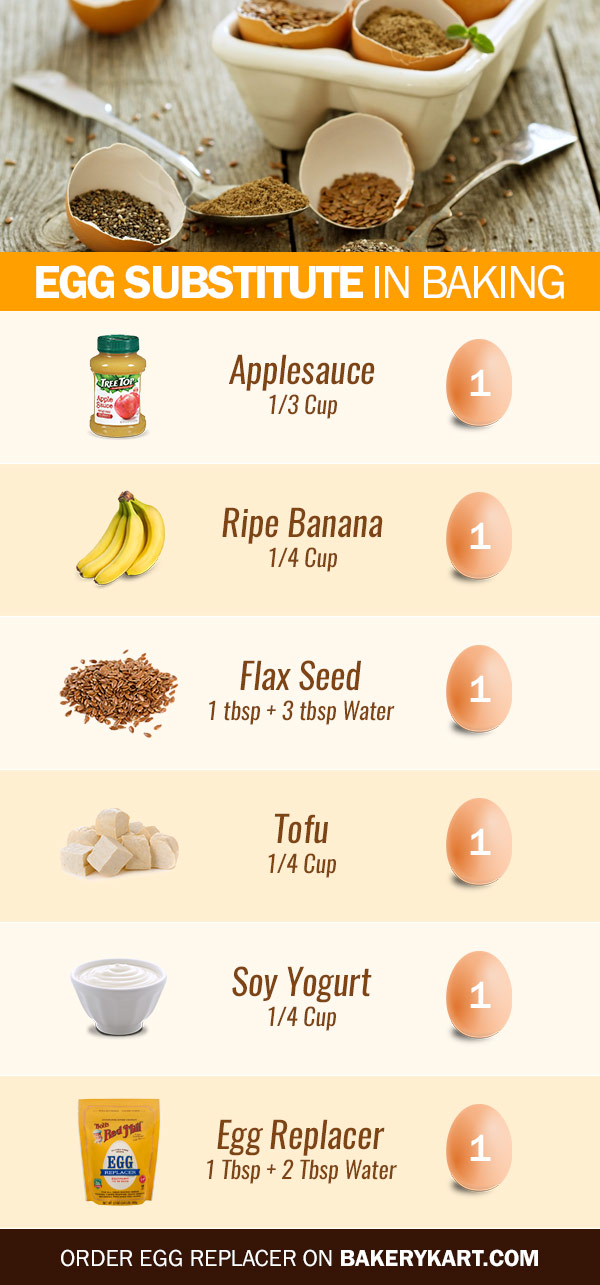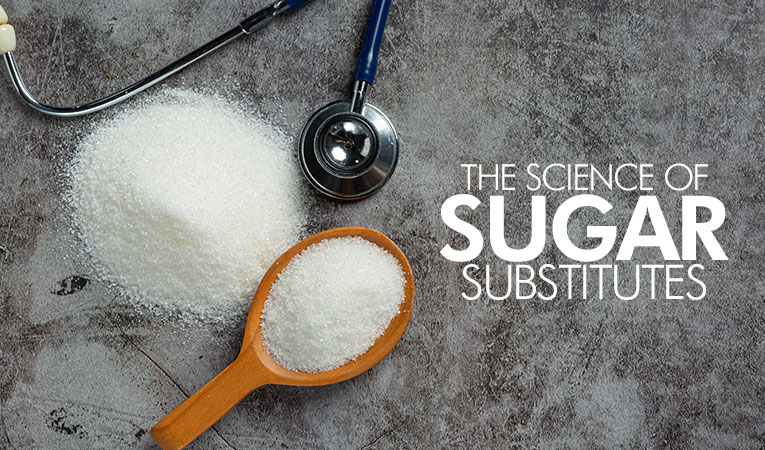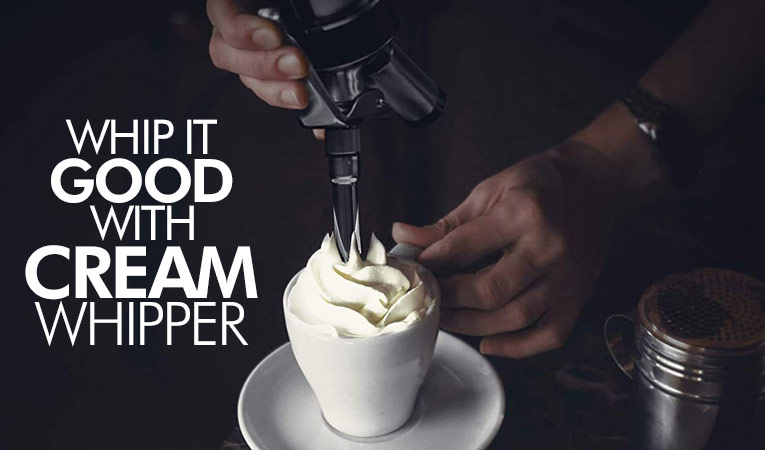Top Egg Substitute in Baking
04-05-2025
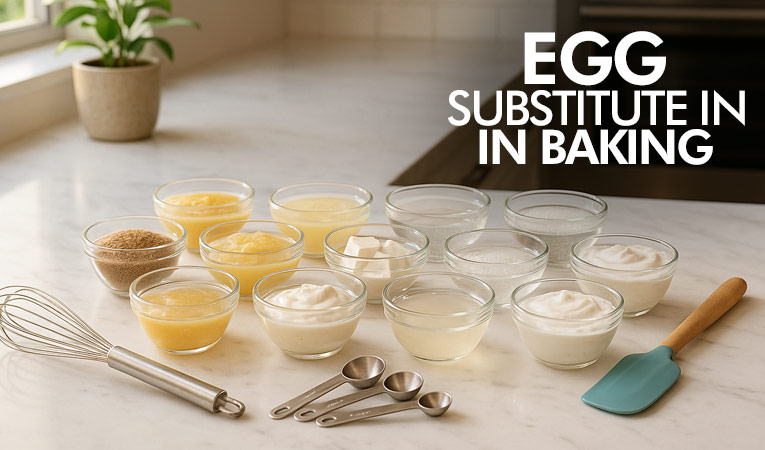
Eggs are a key ingredient in many baking recipes, prized for their ability to provide structure, moisture, and texture to a variety of baked goods. Whether you’re making cakes, cookies, or breads, eggs help bind ingredients together, add volume, and create a rich, tender crumb. However, there are many reasons why someone might need or prefer to substitute eggs in baking. Common dietary restrictions, such as egg allergies or sensitivities, are just one reason why egg substitutes in baking have become increasingly popular. Additionally, those following a vegan or plant-based lifestyle avoid eggs for ethical reasons, and others may seek alternatives due to health concerns like cholesterol levels or calorie intake.
Fortunately, the good news is that eggs are not irreplaceable. With the right egg substitute in baking, you can still achieve similar textures and structures without compromising on taste or performance. Various egg substitutes can effectively replicate the key properties of eggs in recipes, from binding to leavening, and even adding moisture. These substitutes open up a world of possibilities for those with dietary restrictions or preferences, allowing them to enjoy delicious baked goods without the need for eggs.
In this blog, we will explore the top egg substitutes in baking, offering insight into how each one works and when it’s best used. Whether you're baking for a vegan, an allergy-sensitive friend, or simply experimenting with egg-free recipes, these substitutes can be your go-to solution for perfectly baked treats.
Why People Seek Egg Substitutes in Baking
There are several reasons why people turn to egg substitutes in baking, ranging from health concerns to ethical reasons. Eggs are nutritious but also high in cholesterol and calories, making them less desirable for individuals looking to reduce saturated fats or manage heart health. As more people embrace healthier lifestyles, egg substitutes in baking offer a way to enjoy baked goods without compromising on their health goals.
- Health Concerns: Eggs, while nutritious, are high in cholesterol and calories. People on low-calorie or low-cholesterol diets may turn to egg substitutes in baking to maintain healthier routines and enjoy their favorite treats without the extra fat.
- Ethical Reasons: Many people following vegan or cruelty-free diets avoid eggs due to concerns about animal welfare and factory farming practices. As plant-based diets gain popularity, egg substitutes in baking provide an ethical alternative, allowing individuals to enjoy baked goods without using animal products.
- Allergies or Sensitivities: Egg allergies are common, and individuals with egg sensitivities must avoid them in all forms. Additionally, people with lactose intolerance often seek egg-free, dairy-free options to prevent digestive issues, making egg substitutes essential for safe baking.
- Special Diets: People following paleo, keto, or gluten-free diets use egg substitutes in baking to stay within their dietary restrictions while still enjoying delicious baked goods.
Each of these factors contributes to the growing demand for effective egg substitutes in baking.
Understanding the Role of Eggs in Baking
Eggs are essential ingredients in many baking recipes due to their versatile roles in creating the perfect texture, structure, and flavor. Whether it’s a cake, cookie, or bread, eggs serve multiple purposes that help enhance the final product. Here are the key roles eggs play in baking:
- Eggs as Binders: Eggs help hold the ingredients together in a recipe, preventing the batter or dough from falling apart. This is especially important in recipes where dry ingredients need to be bound with wet ones, such as in cookies or meatloaf.
- Eggs as Leavening Agents: Eggs provide lift and structure to baked goods by trapping air during the mixing and baking process. This helps create light, airy textures, particularly in cakes, soufflés, and meringues.
- Eggs for Moisture and Richness: Eggs contribute moisture and richness to baked goods, making them softer and more tender. The fat in egg yolks adds to the overall richness of the texture, enhancing the mouthfeel of cakes, muffins, and custards.
- Eggs for Emulsifying: Eggs help combine ingredients that typically don’t mix, like fat and water. This emulsifying property ensures smooth, stable batter and dough, which is crucial for creating uniform textures in cakes, sauces, and frostings.
Popular Egg Substitutes
Baking without eggs can be a challenge, but with the right substitutes, you can still achieve the desired texture, taste, and structure. Here are ten popular egg substitutes for baking, including what they are, how to use them, their benefits, and measurement conversions.
-

Mashed Banana
Mashed ripe bananas is an excellent egg substitute, especially in baked goods that require moisture and natural sweetness. It works particularly well in cakes, muffins, and pancakes, where its soft texture helps to bind ingredients together. Beyond its role as a binder, mashed banana adds a subtle, pleasant sweetness and richness to the final product, making it a go-to option for banana bread or other sweet treats. While it adds moisture and sweetness, it may slightly alter the flavor profile of your baked goods, which can be a benefit or a drawback depending on the recipe. Additionally, mashed banana results in a denser texture, which is great for some recipes but may not be ideal for light, fluffy cakes or pastries. It’s also a fantastic source of fiber, vitamins, and minerals, making it a nutritious choice for those looking for healthier alternatives in their baking..
-

Applesauce
Is another versatile egg replacement that works wonderfully in moist baked goods like cakes, muffins, and brownies. It helps to retain moisture, ensuring that the final product remains soft and tender. Applesauce is mild in flavor, allowing the other ingredients to shine, while adding a subtle sweetness to the dish. It is particularly effective in recipes where eggs are primarily used for moisture, making it a perfect substitute in many dessert recipes. However, while applesauce adds moisture, it may slightly alter the texture, making it a bit denser than when eggs are used. Another consideration is the potential for the flavor of the applesauce to affect the overall taste of the recipe, particularly in more neutral-flavored baked goods. Despite these minor drawbacks, applesauce is a fantastic, low-fat, and easy-to-use alternative for egg-free baking..
-
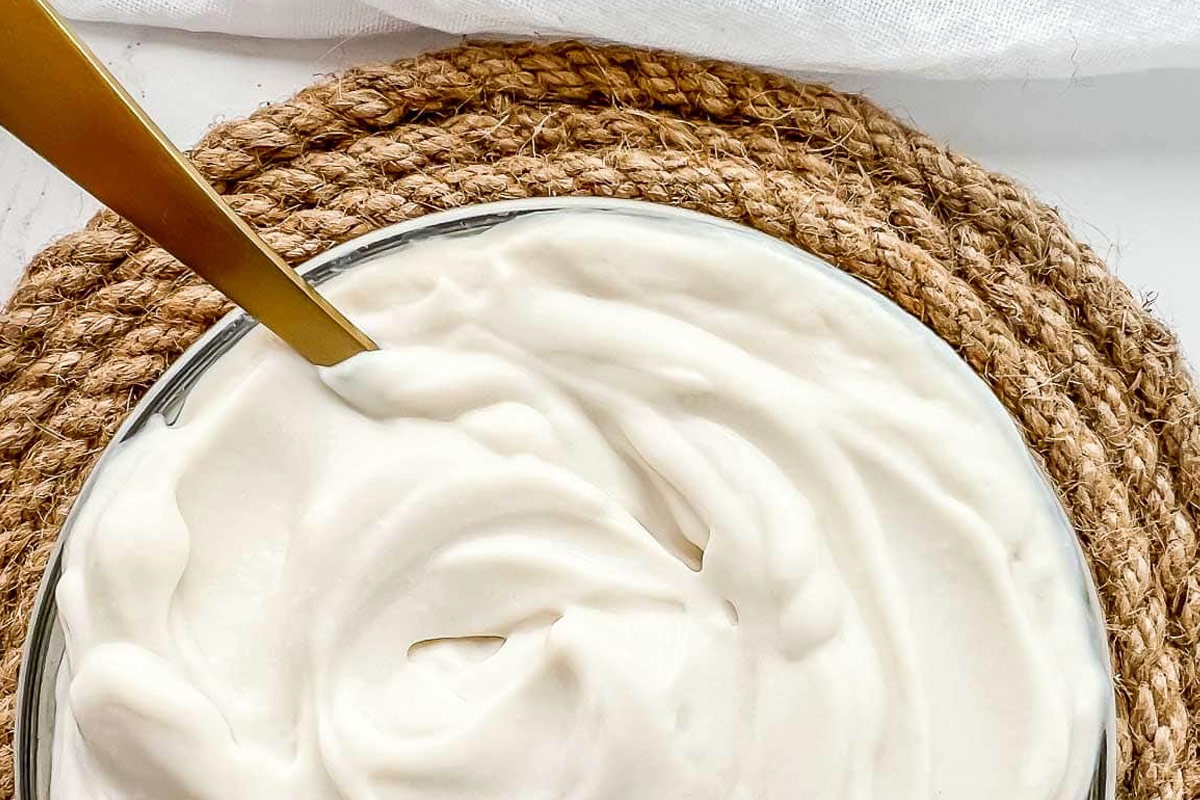
Silken Tofu
Offers a unique texture and is a great substitute for eggs in dense baked goods like brownies, cakes, and even custards. When blended, silken tofu creates a smooth, creamy texture that mimics the richness eggs provide in recipes. Its neutral flavor ensures that it won’t overpower the taste of the baked goods, making it a popular choice for vegan and dairy-free baking. Tofu also provides a solid structure, making it ideal for recipes where eggs are needed to give the product structure and stability. While it works well in many baked goods, it does have the potential to make the final product a bit heavier than when using eggs, which may not be suitable for all types of baked treats. Nonetheless, it’s an excellent option for those seeking a dairy-free, vegan substitute that adds a rich, creamy consistency.
-

Greek Yogurt
Is a rich and creamy egg substitute that adds both moisture and a slight tang to baked goods. It’s an ideal option for cakes, muffins, and pancakes, where you need a creamy texture and a bit of acidity. The tangy flavor of Greek yogurt helps to enhance the overall taste, adding a depth of flavor that eggs would typically contribute. In addition to its rich texture, Greek yogurt adds moisture, ensuring that the baked goods remain soft and tender. It also works particularly well in recipes that call for a slightly tangy or creamier flavor profile. However, the slight tang of Greek yogurt may not be desirable in every recipe, particularly those that require a more neutral flavor. Additionally, while Greek yogurt helps with moisture, it may make the final product denser than using eggs. Despite these considerations, Greek yogurt is a versatile and flavorful substitute.
-
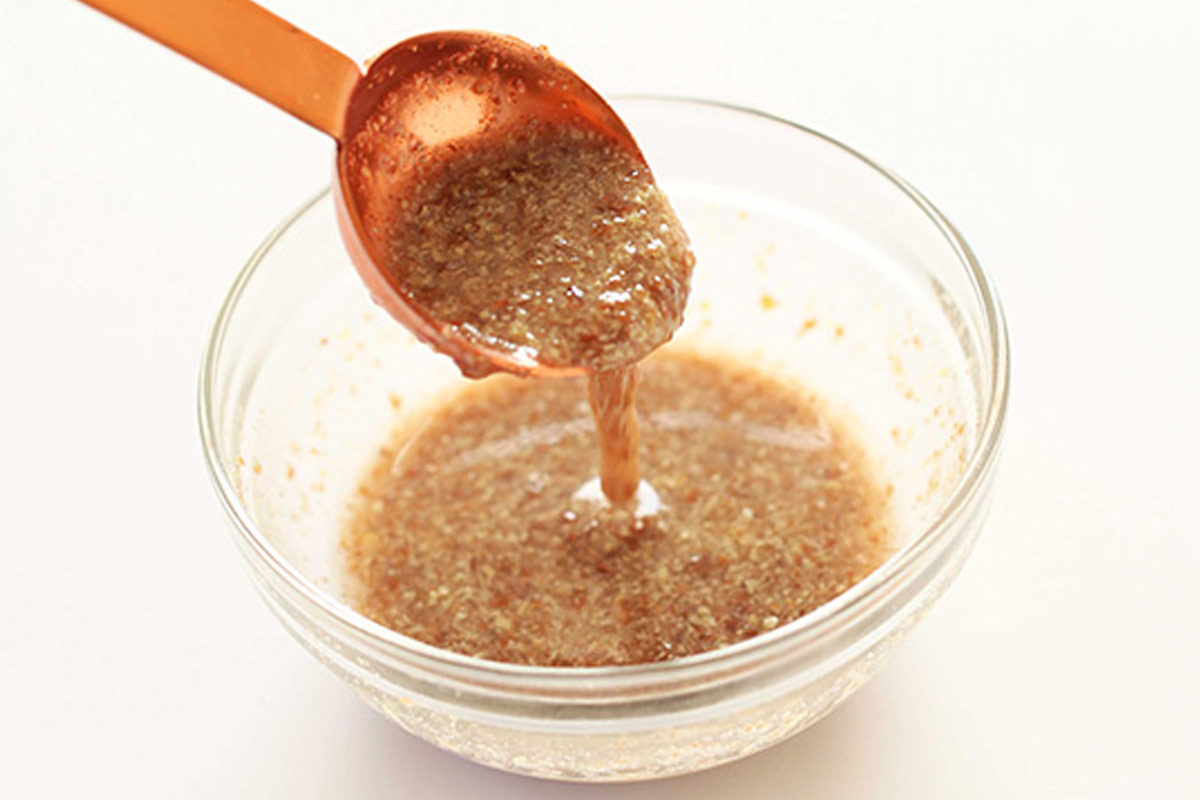
Flaxseed Meal
Flaxseed meal is a powerful egg substitute in baking, especially for those looking to boost the fiber and omega-3 fatty acids in their recipes. When mixed with water, flaxseed meal forms a gel-like consistency that mimics the binding and moisture-retaining properties of eggs. This makes it ideal for recipes like cookies, muffins, and pancakes, where it helps bind ingredients together without drastically altering the flavor. One of the key benefits of flaxseed meal is its nutritional value, providing a healthful boost to your baked goods. While it effectively binds ingredients, flaxseed meal can make baked goods denser and may introduce a subtle nutty flavor, which may not be suitable for all recipes. It works best in whole-grain or nut-flavored treats, but for lighter, fluffier baked goods, the texture might be too heavy. Despite this, flaxseed meal remains a nutritious and effective egg replacement in baking.
-
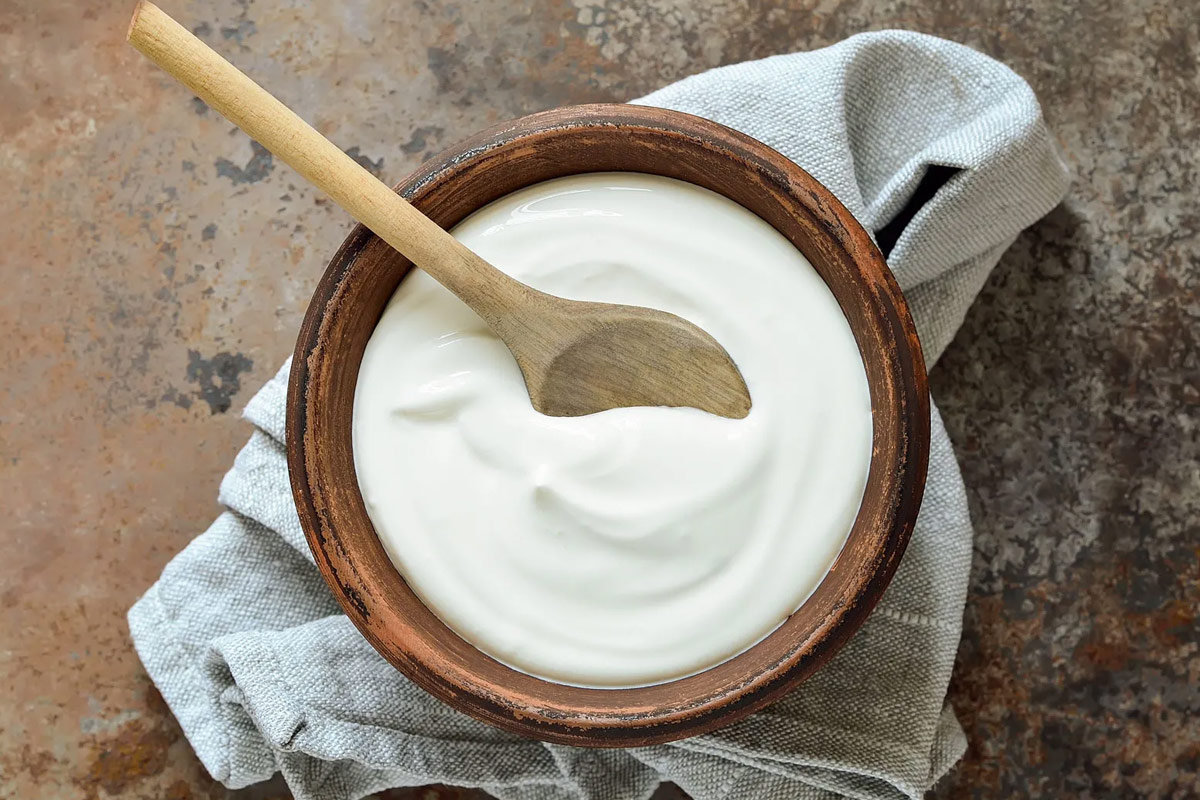
Yogurt or Sour Cream
Is an excellent substitute for eggs in recipes that require moisture and a creamy texture, such as cakes, muffins, and cupcakes. Both yogurt and sour cream add richness to baked goods, ensuring that they remain soft and tender. The slight tanginess of sour cream or yogurt can enhance the flavor profile of your baked goods, adding depth to recipes where a rich, creamy texture is desired. Both ingredients are especially useful in recipes that rely on eggs for moisture, making them great choices for replacing eggs in baking. However, while they add creaminess and moisture, yogurt or sour cream can alter the flavor slightly, which might not be desirable in all baked goods. Additionally, using yogurt or sour cream in place of eggs may make the final product denser, which works well in many recipes but may not be suitable for lighter baked goods like soufflés or sponge cakes.
-

Aquafaba
Is the liquid from canned chickpeas, and it has become a popular egg substitute due to its ability to mimic the texture of egg whites. Aquafaba can be whipped into stiff peaks, making it ideal for meringues, macarons, and other recipes that require egg whites for structure and volume. It’s an excellent choice for vegan baking, as it provides the airy texture typically created by egg whites without using any animal products. While aquafaba works wonderfully in recipes where eggs are used for their texture and volume, it may not be as effective in recipes where eggs are needed for binding or moisture. Additionally, although it has a neutral flavor, there may be a subtle bean-like taste in some recipes, depending on how much aquafaba is used. Overall, aquafaba is a versatile and effective substitute for egg whites, especially in recipes that require a light, airy texture.
-

Buttermilk
Buttermilk is an excellent egg substitute in baking, particularly in recipes where eggs primarily add moisture and a slight tang. It helps tenderize baked goods, making it an ideal choice for pancakes, cakes, muffins, and biscuits. The acidity in buttermilk reacts with baking soda to provide a leavening effect, making baked goods lighter and fluffier. Its tangy flavor adds depth and enhances the overall taste of the final product. However, buttermilk might not be suitable for every recipe, especially those that require a more neutral flavor or a rich texture. It can also make the final product more delicate and crumbly, which may not be ideal for recipes that require a firmer texture. Despite these considerations, buttermilk remains a fantastic option for those seeking a light, tender, and flavorful alternative.
-

Carbonated Water
Carbonated water is an often-overlooked but effective egg substitute that helps create light and airy textures in cakes, waffles, and muffins. The carbonation in the water provides lift, mimicking the leavening properties of eggs. It’s particularly useful when you need moisture but not the structure that eggs provide. Carbonated water doesn't contribute much in terms of flavor, which makes it a great option for recipes that need to remain neutral. However, since carbonated water doesn’t offer the richness or binding properties of eggs, it’s not suitable for all baked goods, especially those that rely on eggs for structure. It’s best used in recipes where lightness and moisture are the primary goals, and its lack of richness may require additional ingredients to maintain the desired texture. Overall, carbonated water is a useful tool for achieving a lighter, fluffier texture in baked treats.
-
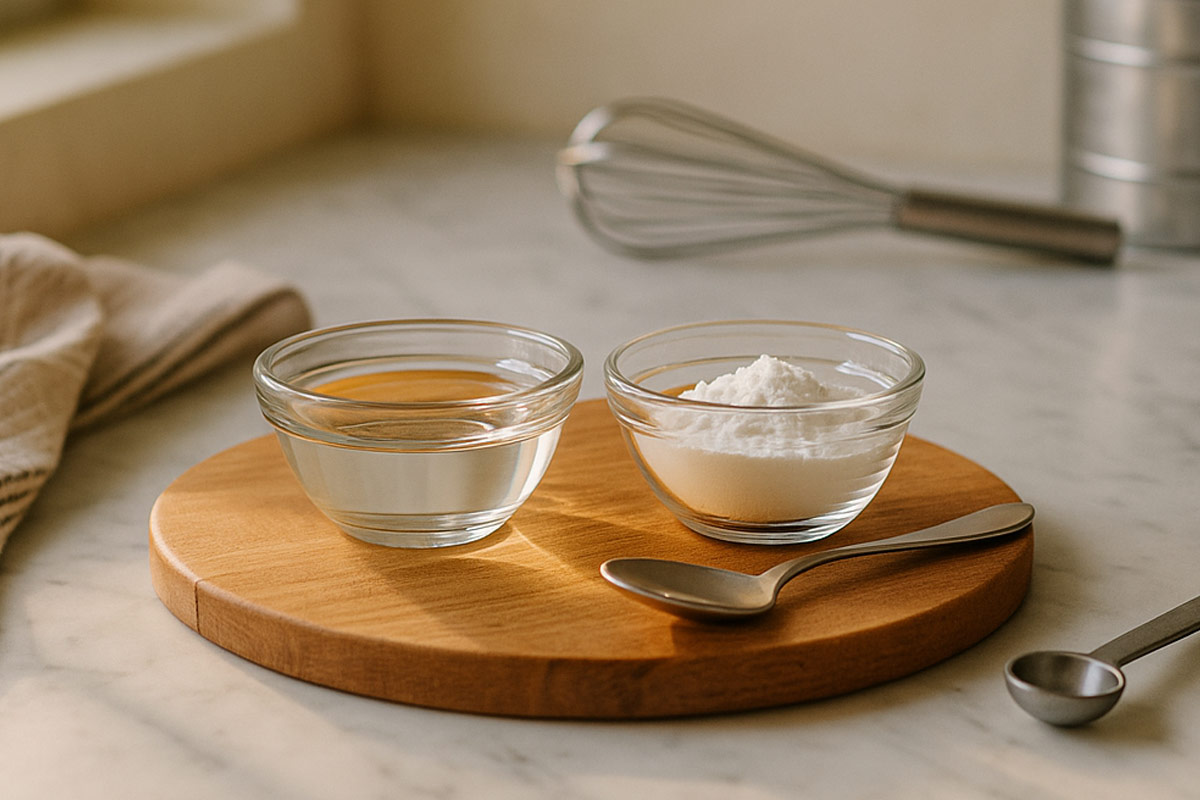
Vinegar and Baking Powder
is a dynamic duo that provides an effective leavening alternative for eggs in baking. When combined, vinegar reacts with baking powder to produce carbon dioxide, which helps baked goods rise and become light and airy. This mixture is especially useful in cakes, cupcakes, and cookies, where a fluffy texture is desired. While vinegar and baking powder provide excellent leavening, they do not contribute moisture or binding, so this substitute is most effective in recipes that already have enough moisture from other ingredients. The slight tang from the vinegar is typically neutralized during baking, leaving no noticeable flavor impact. However, it may not work well in recipes that require eggs for richness or binding. Despite this limitation, vinegar and baking powder are ideal for vegan or egg-free recipes where the primary need is lift and lightness.
Egg Substitute Tables for Specific Applications
| Egg Substitute | Quantity | Best Used For |
|---|---|---|
| Mashed Banana | 1/4 cup | Muffins, pancakes, quick breads |
| Applesauce | 1/4 cup | Cakes, muffins, cookies |
| Silken Tofu | 1/4 cup | Brownies, cakes, quiches |
| Greek Yogurt | 1/4 cup | Cakes, muffins, cookies |
| Flaxseed Meal | 1 tbsp + 3 tbsp water | Breads, muffins, pancakes |
| Yogurt or Sour Cream | 1/4 cup | Cakes, cookies, breads |
| Aquafaba | 3 tbsp | Meringues, macarons, vegan desserts |
| Buttermilk | 1/4 cup | Cakes, pancakes, biscuits |
| Carbonated Water | 1/4 cup | Cakes, cupcakes, waffles |
| Commercial Egg Replacers | Follow package instructions | Various baking recipes |
Cakes & Cupcakes
| Substitute | Quantity | Notes |
| Mashed Banana | 1/4 cup | Adds mild banana flavor |
| Applesauce | 1/4 cup | Enhances moisture |
| Silken Tofu | 1/4 cup | Provides structure |
| Greek Yogurt | 1/4 cup | Adds tangy richness |
| Buttermilk | 1/4 cup | Light and tender texture |
Brownies
| Substitute | Quantity | Notes |
| Silken Tofu | 1/4 cup | Ensures fudgy texture |
| Flaxseed Meal | 1 tbsp + 3 tbsp water | Binds ingredients well |
| Greek Yogurt | 1/4 cup | Adds creaminess |
Cookies
| Substitute | Quantity | Notes |
| Applesauce | 1/4 cup | Adds a slight apple flavor |
| Greek Yogurt | 1/4 cup | Improves moisture |
| Yogurt or Sour Cream | 1/4 cup | Enhances texture |
Frosting
| Substitute | Quantity | Notes |
| Aquafaba | 3 tbsp | Ideal for vegan frosting |
| Commercial Replacers | Follow instructions | Consistent results |
How to Choose the Right Egg Substitute for Your Recipe
Choosing the right egg substitute in baking requires careful consideration of the recipe’s texture, flavor, and the specific role eggs play in the dish. Different substitutes work best depending on whether the recipe requires moisture, binding, or leavening. Some substitutes can affect the flavor of your baked goods, while others focus more on providing texture without altering taste. Matching the right substitute to the type of baked good—whether dense or light—ensures the best results. Additionally, understanding how eggs contribute to the rise and structure of your baked goods will help you select a substitute that mimics those qualities. When using an egg substitute, it’s also important to balance wet and dry ingredients properly to maintain the correct consistency in the batter or dough.
- Texture and flavor: Consider if the substitute will alter the flavor or texture. For instance, mashed banana and applesauce add sweetness and moisture, while silken tofu and Greek yogurt provide a neutral texture without affecting flavor much.
- Dense vs. light baked goods: Use substitutes like silken tofu or flaxseed meal for dense goods like brownies and cakes, while leavening agents like vinegar and baking powder or carbonated water are best for light cakes and cupcakes.
- Leavening agents vs. binding agents: If you need a binder, flaxseed meal or aquafaba work well, whereas leavening agents like vinegar and baking powder will help provide rise.
- Balancing wet and dry ingredients: Substitutes like applesauce or yogurt add extra moisture, so adjust other liquids to prevent a runny batter or dough.
Tips for Baking with Egg Substitutes
Baking with egg substitutes in baking often involves a bit of trial and error. Since each substitute behaves differently depending on the recipe, it's important to experiment with various options to find the one that works best for your needs. Keep in mind that some substitutes may require adjustments to quantities or other ingredients to achieve the desired texture or flavor. In many cases, using a combination of substitutes can yield better results. For example, combining flaxseed meal for binding and baking powder for leavening can provide both structure and rise. Additionally, it's crucial to adjust your recipe’s wet and dry ingredients to account for changes in moisture, texture, or density when replacing eggs. With these tips in mind, you can perfect your egg-free baking and achieve delicious results
- Trial and error: Test different substitutes to find the one that works best for your recipe’s desired outcome.
- Combining substitutes: Sometimes a combination of substitutes, like flaxseed meal and baking powder, offers the best texture and rise.
- Adjusting recipe quantities: Balance the wet and dry ingredients to account for moisture and texture changes from the egg substitute.
Conclusion
Egg substitutes in baking play an essential role in today’s kitchen, offering a variety of solutions for those with dietary restrictions, allergies, or ethical preferences. Ingredients like mashed banana and applesauce bring moisture and sweetness, while silken tofu and Greek yogurt provide richness and creaminess. Each egg substitute has its unique properties that can mimic the structure, texture, and moisture eggs traditionally provide. Whether you're using aquafaba for meringues or buttermilk to enhance the rise, these alternatives can be just as effective when used in the right context.
Experimenting with egg substitutes opens up a world of creative possibilities. Whether you're baking cakes, cookies, muffins, or pancakes, each substitute offers a distinct advantage, enabling you to adjust your recipes to accommodate vegan, allergy-free, or low-cholesterol needs. Don’t hesitate to try different combinations or modify ingredient quantities as you find the right balance of flavor, structure, and texture. The key to successful egg-free baking is understanding the unique role each substitute plays.
When used correctly, an egg substitute in baking can often yield results just as delicious as traditional egg-based recipes. Your favorite baked goods can still shine without eggs, offering the same satisfying taste and texture. We invite you to share your favorite egg-free recipes or substitutes, and continue exploring the exciting world of eggless baking with us. Happy baking!
